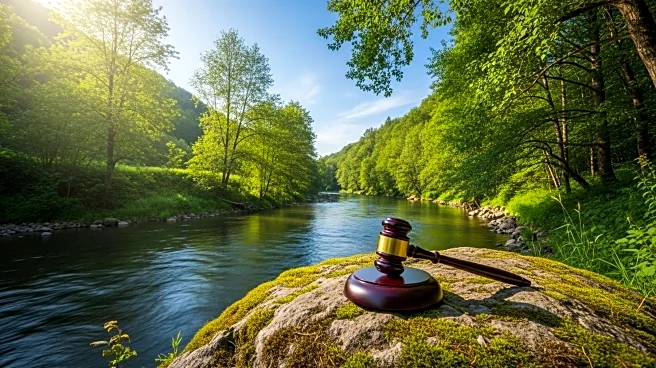What's Happening?
Nearly 4,000 residents and business owners in England and Wales have initiated legal action against Welsh Water and leading chicken producers, Avara Foods Ltd and Freemans of Newent Ltd, over alleged sewage pollution affecting three rivers, including the Wye. The claimants argue that the companies are responsible for extensive pollution, which has devastated the rivers' ecosystems. The legal action seeks substantial damages and demands remedial measures to restore the rivers, which are crucial habitats for rare wildlife. The pollution, primarily from sewage and agricultural runoff, has led to high concentrations of phosphorus and nitrogen, causing algae growth that suffocates aquatic life.
Why It's Important?
This legal action underscores the growing concern over environmental degradation and the impact of industrial activities on natural ecosystems. The case highlights the tension between economic activities, such as poultry farming, and environmental conservation. If successful, the lawsuit could set a precedent for holding companies accountable for environmental damage, potentially leading to stricter regulations and improved practices in agriculture and waste management. The outcome of this case could influence public policy and drive efforts to protect and restore vital ecosystems in the UK and beyond.
What's Next?
The legal proceedings will likely involve extensive examination of evidence and expert testimonies to determine the extent of pollution and the responsibility of the accused parties. Environmental groups and local communities may increase advocacy efforts to raise awareness and support for the case. The companies involved may need to reassess their environmental practices and consider implementing more sustainable methods to prevent further pollution. The case could also prompt government agencies to review and strengthen environmental regulations related to agricultural runoff and sewage management.
Beyond the Headlines
The case raises ethical questions about corporate responsibility and the balance between economic growth and environmental protection. It also highlights the cultural significance of rivers as natural heritage and the need to preserve them for future generations. The legal action reflects a broader societal shift towards environmental accountability and the importance of community involvement in conservation efforts.









